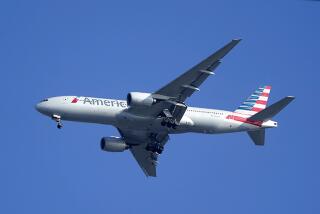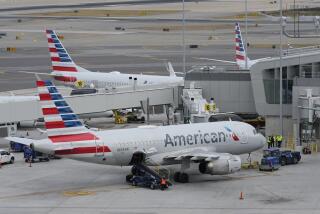Airlines begin rollback of surcharges
- Share via
Mayor U.S. airlines today began rolling back fuel surcharges just days after doubling the fee to $40 as domestic passengers balked at the fare increases amid signs of a slowing economy.
It was the latest setback for the airline industry, which has been trying to pass the cost of higher fuel costs to passengers by tacking on surcharges to the price of the ticket.
A similar effort two weeks ago to raise the surcharge to $50 also was withdrawn, with fuel surcharges remaining at about $20 for most of the large airlines.
“This is a behavior that we are likely to see for the duration of 2008,” said Amy Ziff, editor-at-large for online travel service Travelocity.com. “They’re trying to recover the cost of fuel, so they’re going to find some way to pass it to customers.”
As such, Ziff said travelers need to be particularly savvy this year while shopping for low fares, which may include a surcharge one day but not on another day. “You have to keep an eye on it and if you see a good price, I’d say go for it because it might not be there in a day or two.”
Despite the latest failed attempt, fares in general are expected to rise this year with air travel during spring break rising 10% to 12% compared to the same period last year, according to Farecast.com, an air fare tracking website.
“We are seeing the impact of numerous factors impacting pricing including rising oil prices and fuel surcharges, rumors of consolidation and reduced capacity, emphasizing that consumers need to be smart when knowing when to fly and buy this season,” said John Rauser, a Farecast fare-watcher.
Airlines are blaming escalating fuel expenses for their attempts to raise the surcharge. Today, United Airlines said that although revenue jumped 10% in the fourth quarter, it still posted a loss of $53 million as fuel expenses jumped nearly 26%.
More to Read
Sign up for The Wild
We’ll help you find the best places to hike, bike and run, as well as the perfect silent spots for meditation and yoga.
You may occasionally receive promotional content from the Los Angeles Times.






